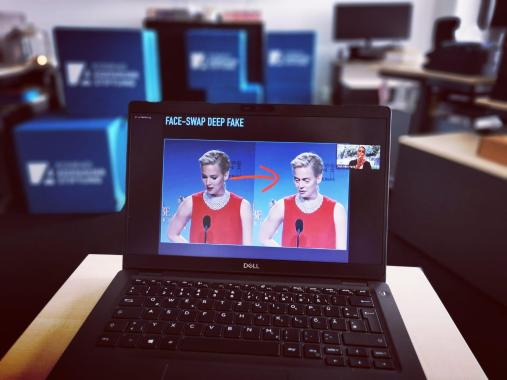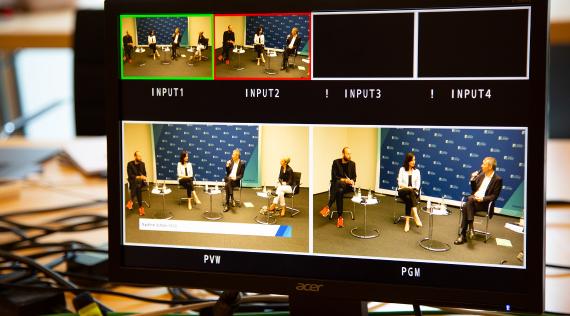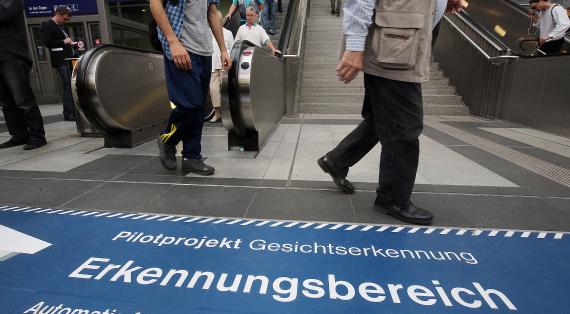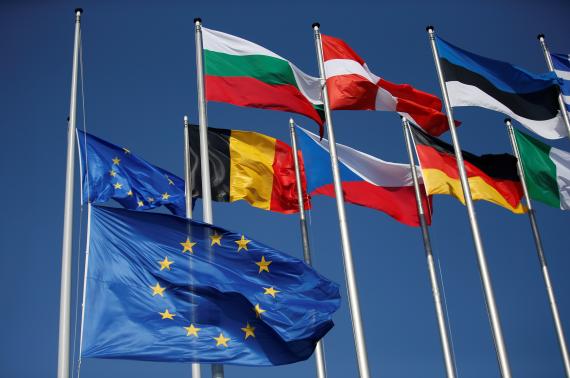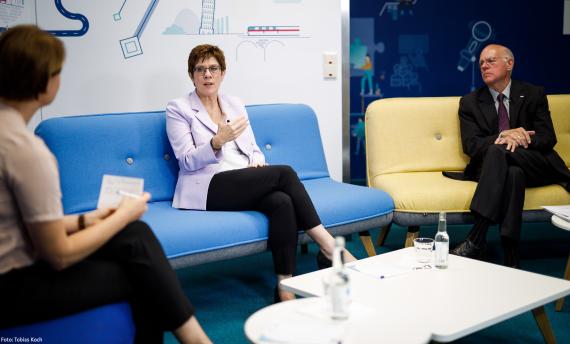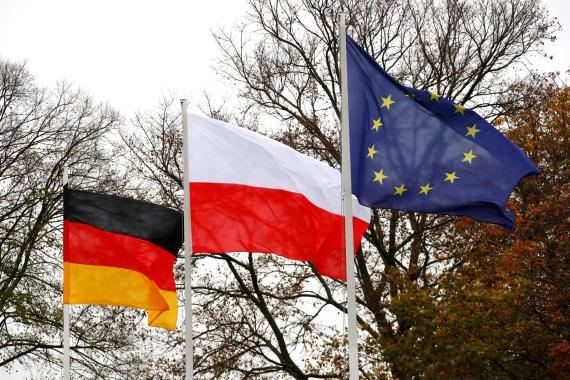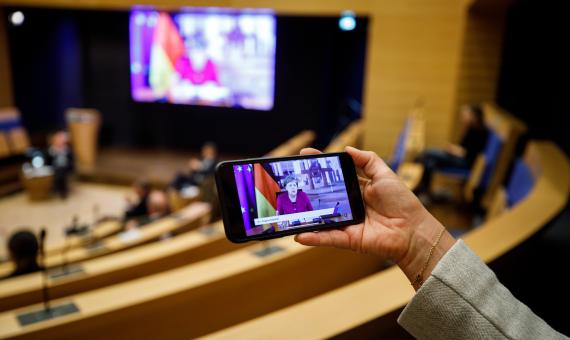Events - Foundation Office Belarus
Event
Preis Soziale Marktwirtschaft 2024
Preisverleihung an Nils Aldag und Christian von Olshausen
Expert conference
Kiel Security Conference 2024
Critical Junctures – the Future of the North
in cooperation with The International Institute for Strategic Studies (IISS) and Hermann-Ehlers-Stiftung (HES)
Expert conference
„Adenauer-Konferenz“: Germany's Role in International Security Policy
German security policy - between obligations and capabilities
At the XII. Adenauer Conference from 15 to 16 May 2024, experts from politics, science, the military and society will discuss the most important milestones on the road to Germany's readiness for war and the looming challenges for NATO in its 75th year of existence.
Congress
fully bookedHi Ai - the AI congress for everyone
Artificial intelligence as a driver of innovation in government and society
On 20 March 2024, the Konrad Adenauer Foundation is hosting a congress on artificial intelligence (AI) in Berlin. The focus will be on political dialogue on the opportunities and challenges that AI brings for democracy, education and the economy. In addition, various formats such as workshops, training sessions, exhibitions and pitches will provide an insight into various AI applications that are shaping the present and are likely to influence the near future.
Symposium
Maritime security in East Asia
The aftermath of the Russian invasion of Ukraine
Maritime security has evolved as one of the most consequential issues in Asia. We are witnessing the coming of age of the so-called middle powers, as well as a new focus of the established great powers. Maritime security is becoming the central nexus tying the different challenges of the region, such as territorial disputes, supply chains, and naval build-up, together.
Expert talk
Europas Transformation zur Klimaneutralität
Wie umgehen mit Degrowth und grünem Bruttoinlandsprodukt?
In der Debatte um die Transformation zur Klimaneutralität haben Degrowth-Konzepte zuletzt eine prominente Rolle eingenommen. Dabei sind Spielarten von Degrowth mittlerweile bis in die Mittelschicht verbreitet. Zusammen mit Jana Schimke MdB, Prof. Dr. Jan Schnellenbach und Dr. Jörn Quitzau wollen wir den Konzepten rund um Degrowth und einem grünen Bruttoinlandsprodukt auf den Grund gehen. Dabei sollen berechtigte Fragen zum Ressourcenverbrauch im Rahmen der Sozialen Marktwirtschaft beantwortet werden.
Event
Policy Accelerator for Climate Innovation
Demo Day
Conversation
Tiergarten Talks 2023
Call to Arms - How to Change a Nation's Strategic Mindset?
The yearly discussion forum and networking event for members of our working groups and the young foreign policy community in Berlin
Event
State of Europe 2023
Impulses for a sustainable Europe
On November 9, the Allianz Forum at Pariser Platz 6 in Berlin will ceremoniously open its doors for what is now the 14th "State of Europe". This occasion offers us the opportunity to honour the multi-layered significance of this memorable date in German history in the context of the outstanding successes of the European unification process.
Discussion
F.A.Z.-KAS-Debatte 2023
Sicherheit in Krisenzeiten: Wie wehrhaft ist Deutschland?
Wehrhaftigkeit, Sicherheit, Resilienz: Diesen Themen widmet sich die diesjährige F.A.Z.-KAS-Debatte zur Internationalen Politik. Am 4. Oktober wollen wir mit unseren prominenten Podiumsgästen und mit Ihnen im Rittersaal der Universität Mannheim diskutieren. Seien Sie dabei! #fazkas23




